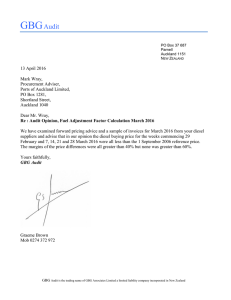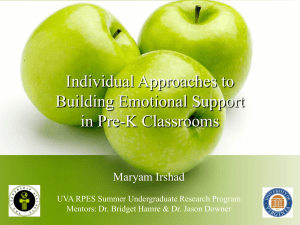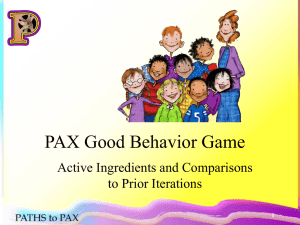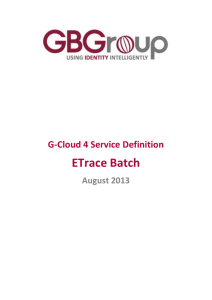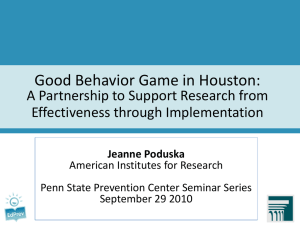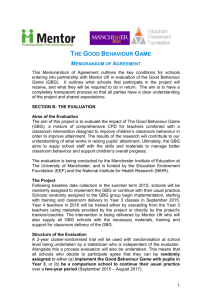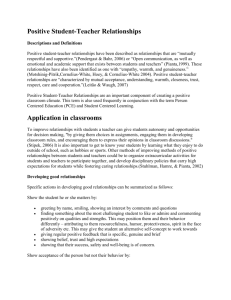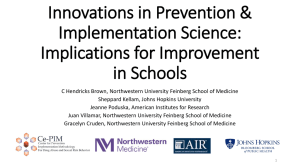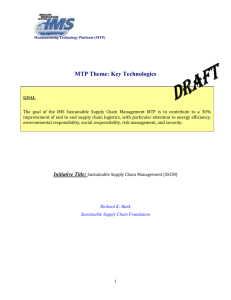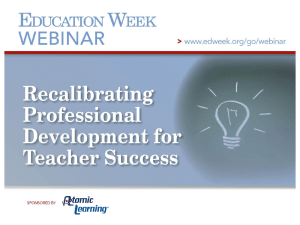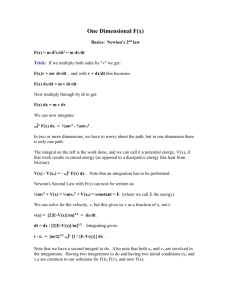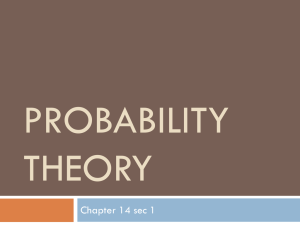Good Behavior Game, My Teaching Partner
advertisement
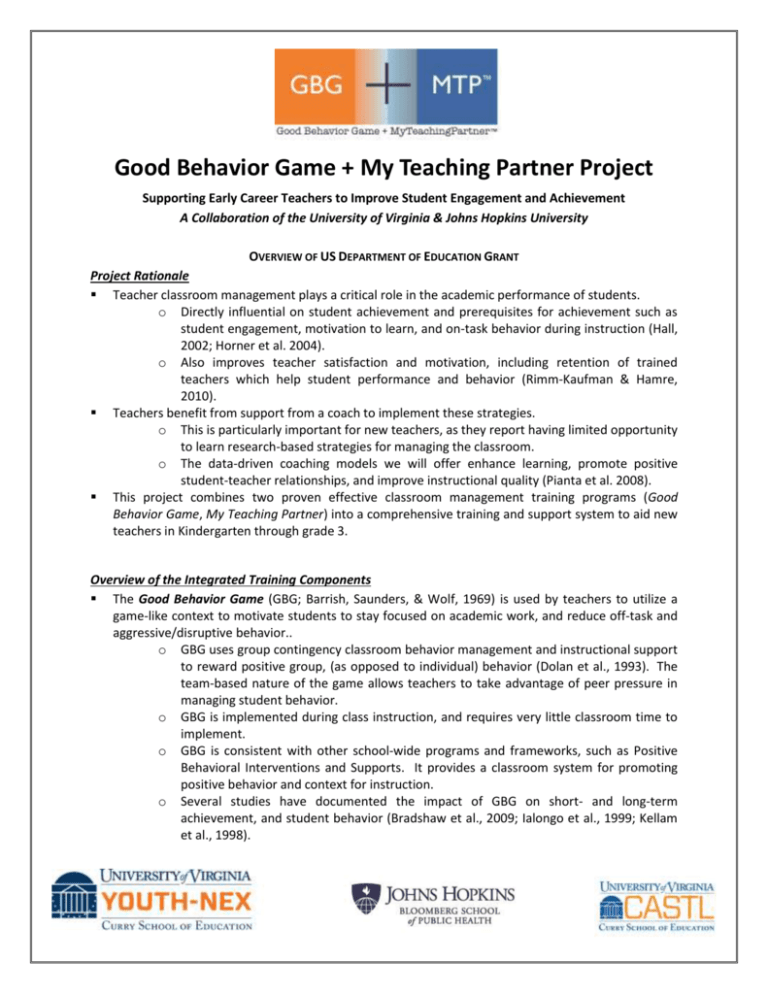
Good Behavior Game + My Teaching Partner Project Supporting Early Career Teachers to Improve Student Engagement and Achievement A Collaboration of the University of Virginia & Johns Hopkins University OVERVIEW OF US DEPARTMENT OF EDUCATION GRANT Project Rationale Teacher classroom management plays a critical role in the academic performance of students. o Directly influential on student achievement and prerequisites for achievement such as student engagement, motivation to learn, and on-task behavior during instruction (Hall, 2002; Horner et al. 2004). o Also improves teacher satisfaction and motivation, including retention of trained teachers which help student performance and behavior (Rimm-Kaufman & Hamre, 2010). Teachers benefit from support from a coach to implement these strategies. o This is particularly important for new teachers, as they report having limited opportunity to learn research-based strategies for managing the classroom. o The data-driven coaching models we will offer enhance learning, promote positive student-teacher relationships, and improve instructional quality (Pianta et al. 2008). This project combines two proven effective classroom management training programs (Good Behavior Game, My Teaching Partner) into a comprehensive training and support system to aid new teachers in Kindergarten through grade 3. Overview of the Integrated Training Components The Good Behavior Game (GBG; Barrish, Saunders, & Wolf, 1969) is used by teachers to utilize a game-like context to motivate students to stay focused on academic work, and reduce off-task and aggressive/disruptive behavior.. o GBG uses group contingency classroom behavior management and instructional support to reward positive group, (as opposed to individual) behavior (Dolan et al., 1993). The team-based nature of the game allows teachers to take advantage of peer pressure in managing student behavior. o GBG is implemented during class instruction, and requires very little classroom time to implement. o GBG is consistent with other school-wide programs and frameworks, such as Positive Behavioral Interventions and Supports. It provides a classroom system for promoting positive behavior and context for instruction. o Several studies have documented the impact of GBG on short- and long-term achievement, and student behavior (Bradshaw et al., 2009; Ialongo et al., 1999; Kellam et al., 1998). My Teaching Partner (MTP) is a web-based, individualized coaching approach focused on supporting strong teacher child relationships and improving teacher-student interactions. o MTP coaches use an observational rubric for tracking teacher student interactions, called the Classroom Assessment Scoring System (CLASS; Pianta, La Paro, & Hamre, 2008), that has established links to student engagement and achievement (Gazelle, 2006; Hamre & Pianta, 2005). Through these observations and video recordings teachers are coached to use their capabilities for best impact. As part of the coaching, teachers have extensive opportunities for (a) viewing video examples of effective interactions via; (b) identifying responses to students’ cues to facilitate student motivation, and (c) individualized feedback and problem-solving analysis to optimize their interactions with students (Pianta, et al. 2008). o Several studies have documented the impact of MTP on teachers’ practice and students’ behavior and academic achievement (Allen et al., 2011; Mikami et al., 2011). Sample of Schools Across several school districts in VA and MD, we plan to work with 84 K-3 early career teachers (i.e., those entering their first three years of teaching). Our ideal target per district is 30 teachers (15 intervention, 15 control) per year. We plan to enroll two cohorts of teachers. Eligible teachers: Are in their first three years of being a full-time classroom teacher for grades K-3. Have completed a bachelors or master’s degree program in the field of education and eligible for certification. Teach for America (TFA) teachers are not eligible for participation. Baltimore City Schools During the past school year, the GBG+MTP project was implemented in 23 City Schools. GBG+MTP staff successfully worked with school staff and 27 teachers in grades kindergarten through three. We are currently in the process of recruiting a new group of early career teachers for the upcoming school year. If you have any first-, second- or third-year teachers who may benefit from participating in this project, please contact GBG+MTP staff. We are available to provide additional information to you and your teacher(s) during the months of July and August. For More Information Contact Dr. Nick Ialongo by email (nialongo@jhu.edu) or phone (410-493-1252). Please feel free to visit our website to learn more about the project and hear teacher and administrator testimonials: http://curry.virginia.edu/gbgmtp
